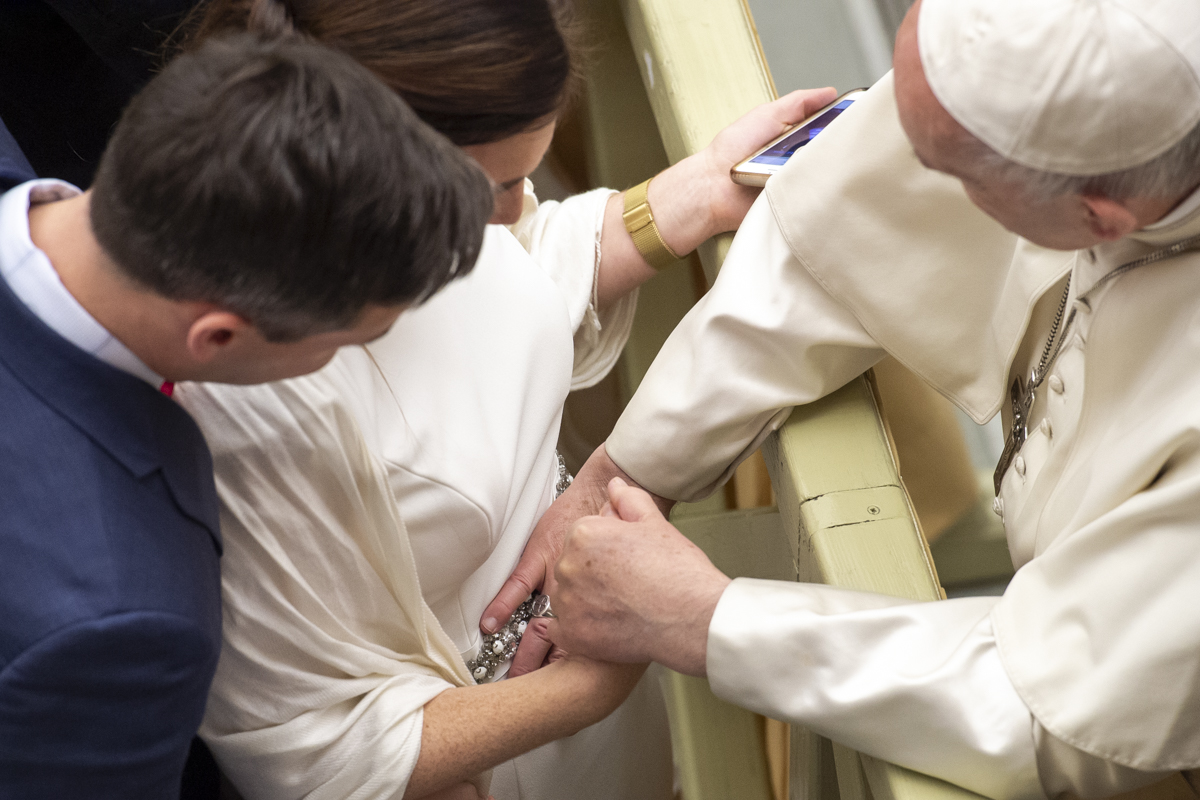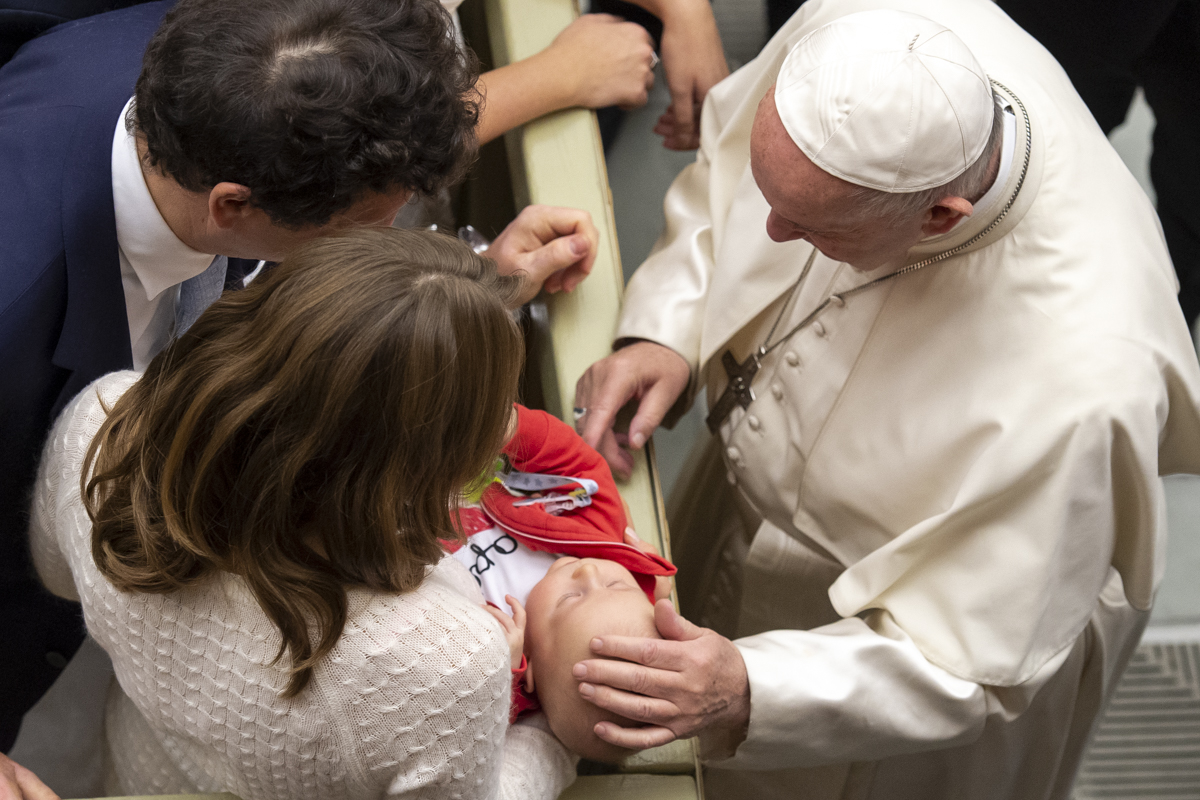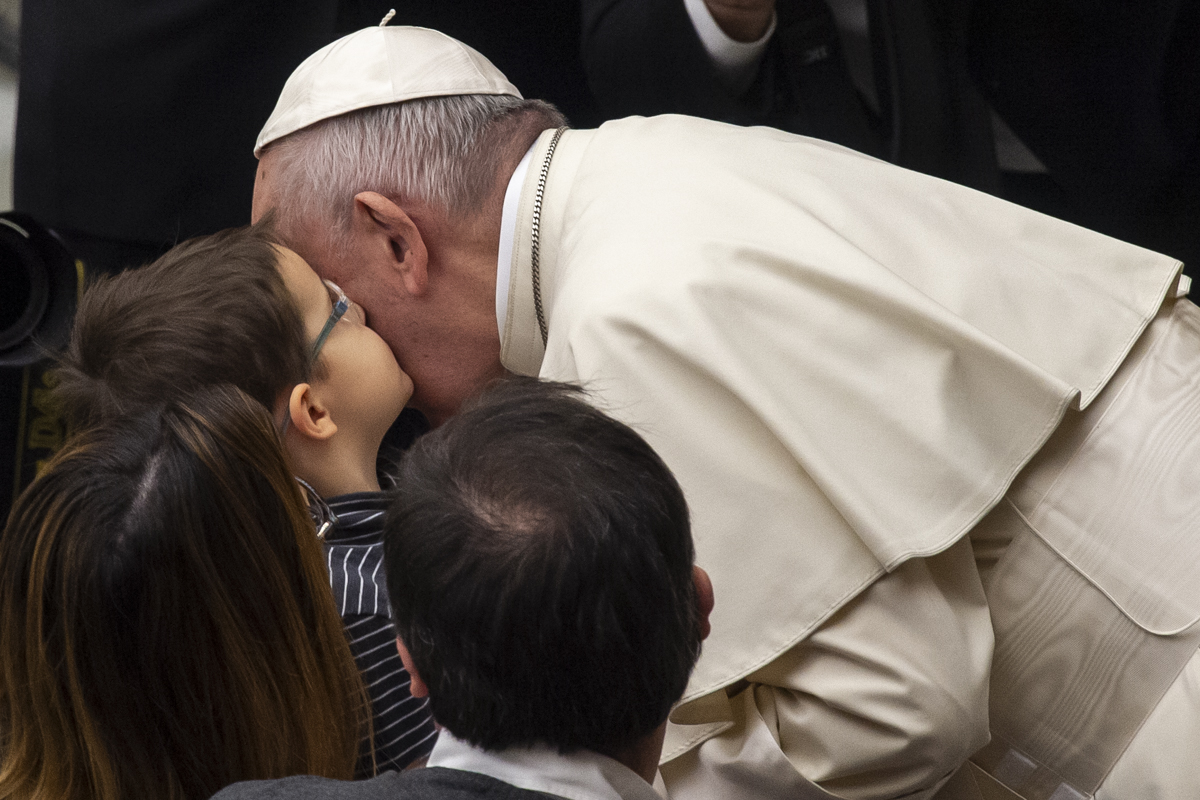Is this the Christmas feast that God likes? What Christmas would He want, which gifts, which surprises? Stores and markets across the world are offering the “perfect surprise” for your loved ones this Christmas, but Pope Francis is wondering if this type of holiday is the kind that God likes. “What Christmas would He want, which gifts, which surprises?” the pope asked today, as he suggested that Christmas IS indeed about surprises, and that there is one simple trick for finding the real surprise in the holiday.
The first Christmas was full of surprises, Francis said, indicating that looking at that first feast is how to discover “God’s tastes.”
It begins with Mary, who was betrothed to Joseph; the Angel arrived and changed her life. From a virgin, she became a mother.
Then Joseph, who was called upon to be father to a son he had not generated. A son who – in a plot twist – arrives at the least opportune moment, that is, when Mary and Joseph were betrothed and according to the Law could not cohabit.
Then Joseph surprises, deciding to leave Mary secretly, at the cost of losing his own reputation.
Then another surprise: God, in a dream, changes Joseph’s plans and asks him to take Mary.
And then, Egypt …
“In short, Christmas leads to unexpected changes of life. And if we want to live Christmas, we must open our heart and be willing to receive surprises, that is, an unexpected change of life.”
And all of this is not the “greatest surprise,” Francis continued. That surprise is the fact that the Most High is a little baby: “The divine Word is an infant, which literally means ‘unable to speak.’ And the divine Word becomes ‘unable to speak.'”
The shepherds, the angels … “Christmas is celebrating the unexpected of God, or better, celebrating the unexpected God, who overturns our logic and our expectations.”
To celebrate this great feast then, we must welcome on earth the “surprises of Heaven.”
Christmas inaugurates a new age, in which life is not planned, but given; in which one lives not for oneself, on the basis of one’s own tastes, but for God, and with God, because from Christmas onwards God is God-with-us, Who lives with us, Who walks with us.
Living Christmas means letting oneself be shaken by its surprising newness. Jesus’ Christmas does not offer the reassuring warmth of the hearth, but the divine tremor that shakes history. Christmas is the victory of humility over arrogance, of simplicity over abundance, of silence over hubbub, of prayer over “my time,” of God over my “I.”
To celebrate Christmas, we need to imitate Jesus and Mary: Go toward those in need, trust, obey God even without understanding. We need to imitate Joseph: Rising to do what God wants, even if it is different than our own plans.
And then, Francis showed how to find the true surprise of Christmas:
Christmas means favouring the silent voice of God over the noise of consumerism. If we know how to stay in silence before the Nativity scene, Christmas will be for us too a surprise, not something we have already seen. Staying in silence before the Nativity scene: This is the invitation, for Christmas. Take some time, go in front of the Nativity scene and remain in silence. And you will feel, you will see the surprises.
The Holy Father entreated us to refuse to make Christmas into something “worldly,” to ignore the One we celebrate.
The rushing of these days is the opposite of what Jesus wants, he admonished: “We blame the many things that fill up the days, the world that goes so fast. Yet Jesus did not blame the world: He asked us not to let ourselves be pulled along by it, to keep watch in every moment, praying.”
So, it will be Christmas if, like Joseph, we give space to silence; if, like Mary, we say “here I am” to God; if, like Jesus, we are close to those who are alone; and if, like the shepherds, we come out of our enclosures to stay with Jesus. It will be Christmas if we find light in the poor grotto of Bethlehem.
It will not be Christmas if we seek the dazzling lights of the world, if we fill ourselves up with gifts, lunches, and dinners but do not help at least one poor person, who resembles God, because at Christmas God became poor.
Dear brothers and sisters, I wish you a happy Christmas, a Christmas rich in the surprises of Jesus. They may seem to be uncomfortable surprises but they are God’s tastes. If we espouse them, we too offer ourselves a splendid surprise. Each one of us has, concealed in his heart, the capacity to surprise. Let us allow ourselves to be surprised by Jesus this Christmas.










